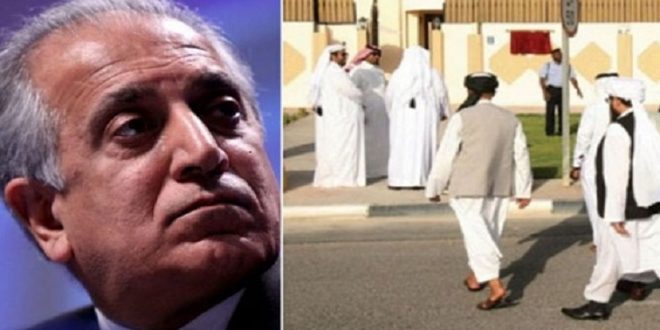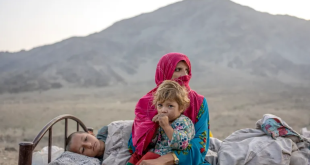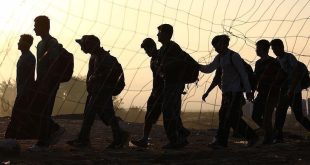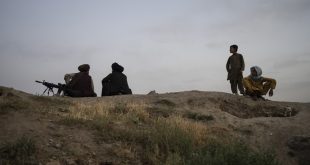AT News Report
KABUL: A number of Afghan politicians are believing that efforts of the U.S. Special Envoy for Afghanistan Reconciliation Zalmay Khalilzad to achieve political settlement is moving very slow.
Khalilzad was in Kabul recently, and held meetings with top Afghan officials to discuss the Afghan peace process. He met with Afghan leaders and prominent politicians including former and incumbent presidents, former national security advisor, Haneef Atmar, the leader of a political parties and other politicians.
However, some politicians on Monday have emphasized over the need to accelerate his efforts at this juncture toward the launch of an intra-Afghan dialogue.
“If it goes this way we will not see a peace. But if it is intensified with clarity it would be better. We should understand the criteria for peace,” said Sayed Ishaq Gailani, the head of National Solidarity Movement of Afghanistan.
“There won’t be a hope for peace until the two sides announce a ceasefire,” said Aziz Rafiee, the Executive Director of Afghan Civil Soceity Forum.
According to the politicians, the Afghan peace conference in China will pave the way for resumption of U.S.-Taliban talks and launch of intra-Afghan dialogue.
“The Beijing conference is very crucial. This meeting can pave the ground for direct negotiation between government and Taliban and the United States,” said Haji Din Mohammad, an Afghan politician who is invited to peace conference in China.
The intra-Afghan meeting was scheduled for October 28th between representatives of Taliban and Afghan politicians including government officials.
But it was delayed for an unspecified period of time after representatives of United States, China, Russia, and Pakistan met in Moscow. Politicians said it was delayed after the Afghan government failed to present its list of participants.
However, Presidential Spokesman Sediq Sediqqi has said that China has decided to postpone the meeting. According to him, the government has prepared a list of participants which includes member of political parties, political allies, oppositions, and other elite members of the society.
 Afghanistan Times
Afghanistan Times




